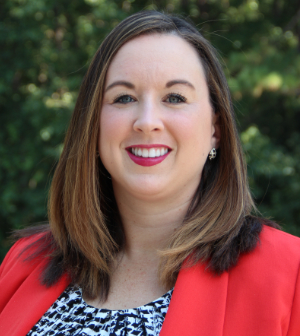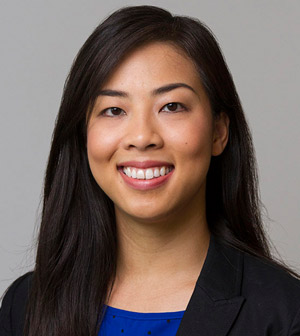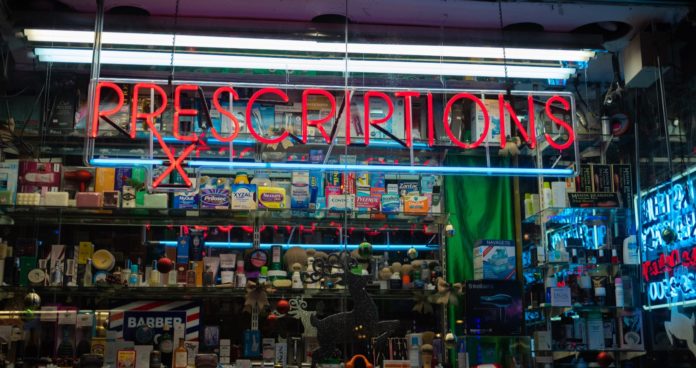Nearly half of rural Georgia pharmacists believe a prescription is needed for the life-saving drug naloxone, despite a standing order that none is required, a recent Mercer University study found.
The findings indicate those suffering from an opioid overdose could face dire consequences if denied access to the drug.

“It could potentially mean saving a life or not,” said Dr. Jennifer Elliott, clinical assistant professor of pharmacy practice, who worked on the study.
Naloxone, sold under the brand name Narcan, is a medication used to block the effects of opioids and rapidly reverse an opioid overdose.
In response to the nationwide opioid crisis, states have increased the public’s access to naloxone through a variety of prescribing methods. Since December 2016, Georgia pharmacists have been allowed to dispense naloxone without a prescription through a standing order.
But when Mercer researchers conducted their study between May and August 2019, they found many rural Georgia pharmacists incorrectly told them a prescription was needed. Researchers also sought to find out whether pharmacies had naloxone in stock and how much it cost.
The results, published on the JAMA Network Open earlier this year, troubled researchers because pharmacists are often the first health care professionals people turn to when they have a medical need.

“Pharmacists are the most accessible health care provider,” said Dr. Jennifer Nguyen, assistant professor of pharmacy practice, who was the lead author of the study. “A lot of the counties here in Georgia that don’t have a primary care provider actually have access to a pharmacist.”
Four student research assistants in the College of Pharmacy called 374 pharmacies in Georgia’s 109 rural counties. The research assistants posed as customers asking about Narcan, collecting responses from 364 pharmacies.
When asked if a customer needed a prescription for the drug, 47.5% of respondents incorrectly said yes. Another 47.1% correctly answered no, 2.3% said sometimes and 3.1% were unsure.
“For 47% of pharmacists to say that they need a prescription, that misinformation could be life-threatening,” Dr. Nguyen said. “So really we need to do a better job of educating our dispensers, or even our providers, that this is available to them.”
There are several reasons why someone might want to have naloxone readily available. Perhaps they know or suspect someone has a drug issue, and they want to have it on hand. Or they just want to have access to it in case of an emergency, Dr. Elliott said.
“I think naloxone is one of those things that we should all have in our first aid kit,” Dr. Nguyen said. “It should be as common as a Band-Aid because we don’t know who needs it. And when someone does need it, we have it.
“It’s potentially saving someone’s life.”
Research assistants also asked pharmacists if Narcan was available at the pharmacy, the cost of the drug and whether a cheaper version was available. Most — 54.7% — said they had it in stock. The majority of those that didn’t were able to direct the research assistant to a chain pharmacy or another specific store. The cash price quote for the medication, with no discounts or insurance applied, ranged from $35.98 to $300.
“Many pharmacists actually said, ‘I don’t have that in stock. I can order it. It’ll be here tomorrow. It’ll be here this day.’ They’ll just put it in with their orders, so that was really reassuring to hear,” Dr. Nguyen said. “But the misinformation (about whether a prescription is required), I think, could be a detriment to public health.”
The next step is to ensure proper education of pharmacists, both Dr. Nguyen and Dr. Elliott said.
It starts with educating pharmacy students, who will graduate and become informed pharmacists. Ideally, they’d like to see continuing education requirements for pharmacists to maintain their licenses. But that would require some sort of legislation, which can be challenging to get.
“This research was so important so that we could show that there was a knowledge gap,” Dr. Elliott said.
Lauren Beasley, a third-year pharmacy student and lead research assistant, said working on the study made her interested in entering the clinical or public health arena after graduation.
The project showed her the important role pharmacists play in public health, she said.
“The attitude of the pharmacist or the knowledge of the pharmacist or some of both can make or break a patient’s access to Narcan,” Beasley said. “If I was really seeking it and had less information than I had, and I called one of these pharmacists who were just not going to give it to me without knowing exactly who I was and whether I had a prescription or where I was from, what my insurance was and what it was for, I would be intimidated. …
“Pharmacists can make or break whether somebody has access to life-saving medication.”
Faculty members from the School of Medicine — Dr. Lauren Gilbert, Dr. Bryant Smalley and Dr. Jacob Warren — and pharmacy student J. Jamie Brooks assisted in the study.










